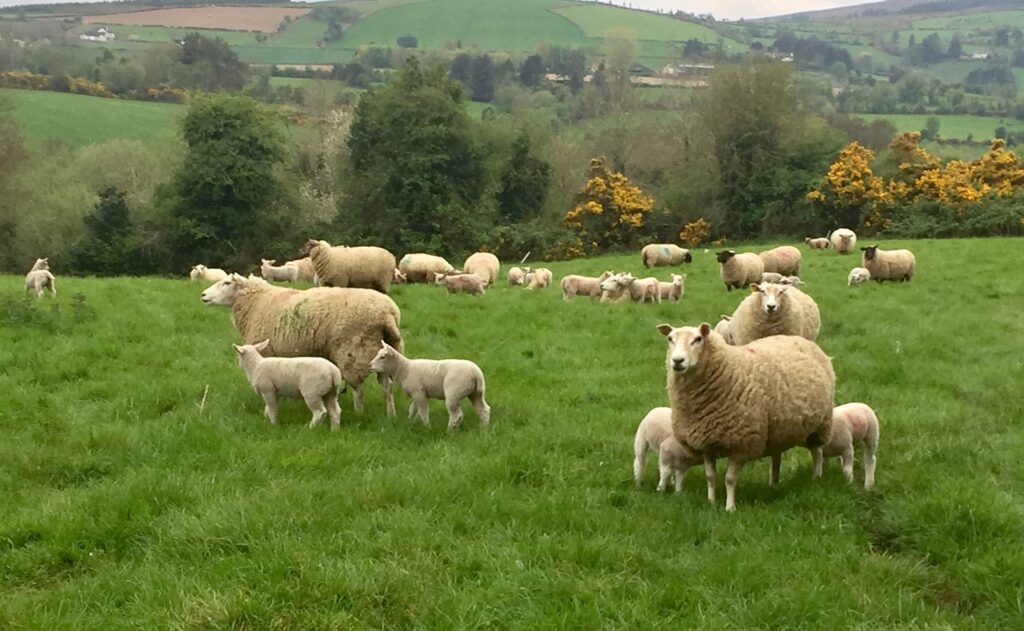Good ewe nutrition immediately before the rams go in sets the flock output for the rest of the year.
But this is often the time when pasture quality is in decline as we move into the autumn. So how do you reconcile the two issues?
Paul Fox of Uniblock highlights how to use effective supplementary feeding to maximise your lamb output.
“Around this time of year, sheep producers across the country will be thinking of how best to minimise the number of ewes showing anoestrus, maximise the number of eggs shed and getting them fertilised.
“You only get one chance each year to optimise lamb output, so it’s important to make the most of it,” he said.
The importance of good nutrition
With every missed pregnancy costing around €1.70/ewe, Fox said: “Farmers will want to ensure embryos become safely implanted and are ready to develop into healthy, viable foetuses.
“Good nutrition will help enormously in achieving these objectives and ensuring ewes are on an improved plane of nutrition pre-tupping will give a lamb output response for most breeds.
At a time when grass quality is diminishing, supplementary feeding is often crucial in this respect. 12 trials show that it can boost lambing percentage by an average of 15% (range of 7-22%).
“This often results from a reduction in barren ewes and more animals holding to first-cycle service, which also makes for a tighter lambing period.
“Supplementary ewe feeding pre-tupping can also increase the proportion of twins over singles,” he said.
At tupping time, he said, the optimum ewe body condition score (BCS) for hardy breeds in the hills is 2.5-3.0.
“Research has shown that ewes supplemented at tupping time remain in better condition through their pregnancy.
“Unitup provides ewes with fish oil and Megalac – a protected oil that boosts energy intake. Numerous trials on dairy cows and pre-tupping ewes have shown it improves fertility.
“Unitup also contains Hi Pro soya to aid embryo development and the trace element package that contains the newest development in protected minerals.”
Fish oils provide high concentrations of omega-3 long-chain polyunsaturated fatty acids. These are essential for good health and animal performance.
The greatest benefits from supplementing with fish oils are likely to be seen with breeding stock. Both male and female animals have shown improvements in performance following supplementation.
It’s always advisable to include fish oil in the diet via a supplement. Like fish meal, fish oil is not very palatable when fed neat.
Uniblock’s source contains 100% oil extracted from mixed species of fish and is free from sediment and impurities. The daily intake of Unitup supplies the required level of omega 3. For best results give Unitup to your breeding ewes four weeks prior to mating.
The mineral supplementation of ewes post-mating proved to be a popular action among farms – both lowland and hill operators – participating in the Department of Agriculture’s Sheep Welfare Scheme.
Unitup is said to be the ideal product to meet the scheme’s requirements as it’s ideal for ewes and guideline feeding rates are clearly defined.
For more information on Unitup contact UNIBLOCK at: 042-9329176.
Click here for more information
Are your ewes at the optimum body condition score?
Why are fish oils important?
Ideal for use with the Sheep Welfare Scheme
More information




